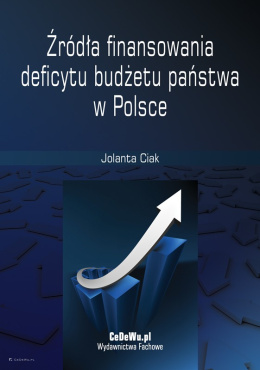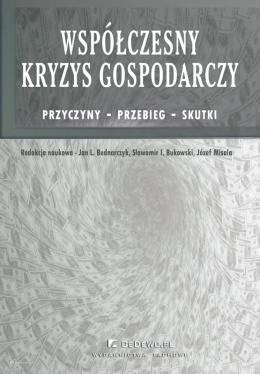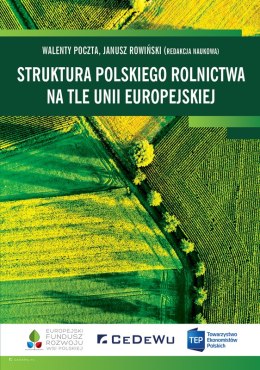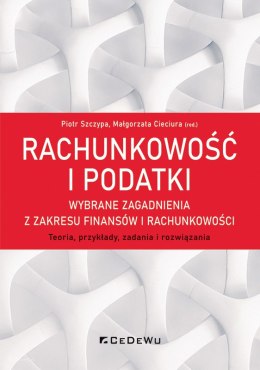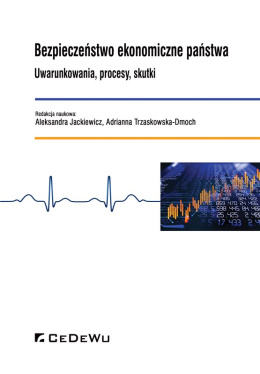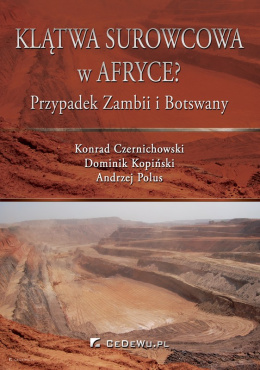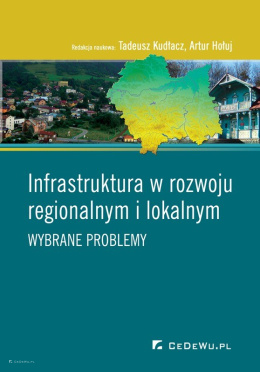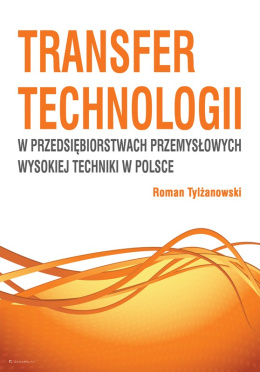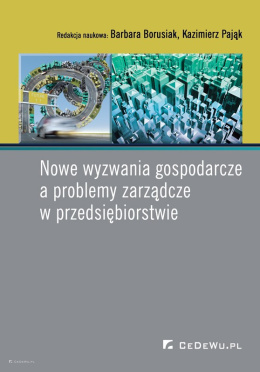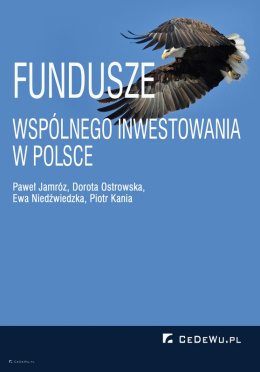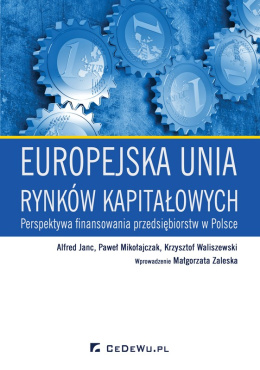-
Koszyk jest pusty
-
x

-
Koszyk jest pusty
-
x
- Kategorie
-
Between Crisis and Innovation - European Policies Through National and Transnational Perspectives
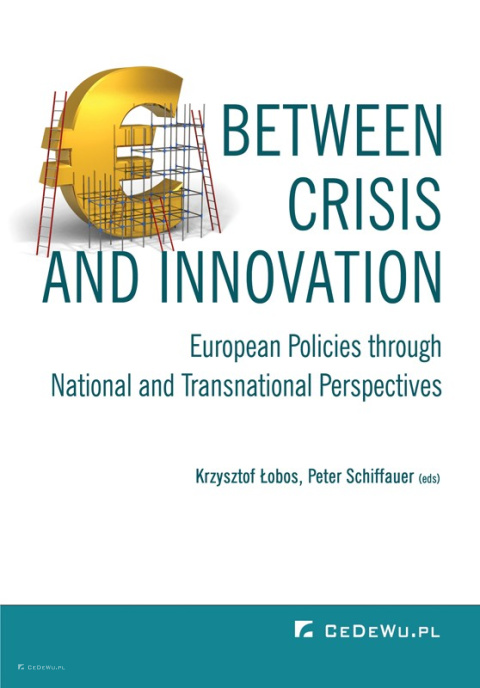
Does the global economic and financial crisis put European integration into question or does it rather constitute a challenge and an opportunity for the European Union to innovate both economically and politically and to become an actor in global policy that is capable to ensure sustainable development? Deepened academic studies of the European integration process show in an exemplary manner how the narrative of simplified drama as usually carried in the media cannot seize the complexity of contemporary society life and thus frequently misrepresents what is happening in European affairs. Conflicts of interest are unavoidable in an integrated economic area comprising 500 million human beings. The Union's choice to peacefully settle them, wherever possible through patient bargain and compromise rather than imposing the majority's will, is frequently misunderstood by the broader public. The more legitimate and important it is that academic research provides citizens and economic actors wi
| Wysyłka w ciągu | 24 godziny |
| Kod kreskowy | |
| ISBN | 978-83-7556-792-2 |
| EAN | 9788375567922 |
Does the global economic and financial crisis put European integration into question or does it rather constitute a challenge and an opportunity for the European Union to innovate both economically and politically and to become an actor in global policy that is capable to ensure sustainable development? Deepened academic studies of the European integration process show in an exemplary manner how the narrative of simplified drama as usually carried in the media cannot seize the complexity of contemporary society life and thus frequently misrepresents what is happening in European affairs. Conflicts of interest are unavoidable in an integrated economic area comprising 500 million human beings. The Union's choice to peacefully settle them, wherever possible through patient bargain and compromise rather than imposing the majority's will, is frequently misunderstood by the broader public. The more legitimate and important it is that academic research provides citizens and economic actors with background knowledge useful for monitoring on the grounds of their own judgment whether and to which extent the European Union's manifold activities do implement its solemnly declared values.
The scholarly contributions assembled in this volume examine a number of crucial issues of regional, national or transnational policy related to Europe's economic and political integration, with a particular focus on the developments after the Union's 2004 enlargement. The contributions pay thus tribute to the broad variety of activities characterising the Union's system of multi-level governance. By deepening knowledge, stimulating debate and reflection they contribute to a mosaic of awareness allowing to better understand how the regional, national and transnational levels while maintaining their diversity need to integrate their economic and political efforts for the achievement of peace, freedom, security, justice and sustainable welfare in Europe.
Foreword 13
Part I
Perspectives on National, European and Global Economy
Chapter 1
Macro-prudential Policy and Stability of the Financial System in Poland - Marian Noga 19
1.1. Introductory remarks 19
1.2. The macro-prudential policy should be targeted at financial stability 21
Conclusion 26
Bibliography 27
Chapter 2
Transparency of Monetary Policy vis-ŕ-vis Risks for the Financial Stability - Agnieszka Tomczak 29
2.1. Genesis and character of the monetary policy transparency 30
2.2. Information instruments 31
2.3. Message addressees 32
2.3. Financial 2007-2008+ crisis and communication policy in the euro area 34
Conclusions 41
Bibliography 42
Chapter 3
Alternative Trading Systems in European Capital Market as an Unregulated Market for Financial Instruments Trading - Marek Kopyściański, Tomasz Kopyściański 45
3.1. Introduction 45
3.2. Origin of alternative systems of trading in financial instruments 46
3.3. Alternative trading systems vs. regulated markets 49
3.4. Role of alternative trading systems in the economy 54
Summary 57
Bibliography 57
Part II
EU Membership as a Stimulus for Emerging Economies - Polish Experience
Chapter 4
Financing Innovative Undertakings from the European Union Structural Funds - Joanna Wieprow 61
4.1. Introduction 61
4.2. The concept and types of innovation 62
4.3. The significance of innovation 65
4.4. Financing innovation projects from the structural funds in the years 2007-2013 66
4.5. Examples of the implementation of innovation projects 69
4.6. Financing innovation under the 2014-2020 financial perspective 71
Conclusion 72
Bibliography 73
Chapter 5
Innovativeness of the Polish Service Sector as Well as of the Whole Economy in Comparison with Chosen Countries of Central and Eastern Europe - Waldemar Gajda 75
5.1. Introduction 76
5.2. Innovations in the history of economic thought 77
5.3. The analysis of activity of the Polish service sector 78
5.4. Innovativeness of the Polish economy in comparison with the chosen countries of Central and Eastern Europe 79
5.5. Barriers of innovativeness of the Polish service sector 82
5.6. Barriers connected with education and knowledge 83
5.7. Barriers connected with the weakness of the academic and R&D sphere 83
5.8. Economic and financial barriers 84
5.9. Barriers connected with R&D financing 84
5.10. Market barriers 85
5.11. Barriers of political nature 85
5.12. Legislative barriers 86
Conclusion 86
Bibliography 87
Chapter 6
Irregularities in the Process of Implementation of Projects Co-Financed from EU Funds under the 2014-2020 Financial Perspective - Analysis of Article 24 of the "Implementation Act" - Jarosław Odachowski 89
6.1. Introduction 90
6.2. The essence of irregularity 93
6.3. The analysis of Article 24 of the Implementation Act 94
Conclusion 105
Bibliography 106
Chapter 7
The Impact of EU Funds on Indebtedness of Polish Companies - Anna Motylska-Kuźma 109
7.1. Introduction 109
7.2. EU Funds and their applicability in Poland 110
7.3. Procedures and resources expenditure 113
7.4. the use of EU Funds and company indebtedness 114
Summary 117
Bibliography 117
Chapter 8
Poland's Membership in the European Union - an Opportunity Seized? - Izabela Jędrzejowska-Schiffauer, Adam Hetmańczuk 119
8.1. Introductory remarks: Towards the accession 119
8.2. Balance of financial flows between the EU and Poland 120
8.3. Poland's economic growth in the European context 123
8.4. Poland's overall economic development in the context of EU membership 124
8.5. Reform imperative in the face of the crisis 125
8.6. Consequences of Poland's remaining outside the Single Currency 127
8.7. EU perspective on Poland's economic policy: a smooth or bumpy way Forward? 129
8.8. Concluding Remarks 131
Bibliography 132
Part III
Political Dimension of European Integration
Chapter 9
Political Rights and Liberties in the European Union: an Ideal Dating Back to the Enlightenment? - Helene Palma 137
9.1. The central importance of the notion of inalienable individual rights and liberties for Europe 138
9.2. The invention of natural individual rights and liberties 139
9.3. Locke's conception of natural individual rights and liberties 140
9.4. How locke's views travelled throughout Europe and how the concept of natural individual rights and liberties spread to the whole continent 142
9.5. The French Declaration des droits de l'homme et du citoyen: first public formulation of the notion of human rights, later endorsed by international organizations such as the European Union 146
Bibliography and webography 147
Chapter 10
Are there really European Values? - Piotr Napierała 149
10.1.Introduction: Two parts of the west 149
10.2. Mistrust of religion/ state 151
10.3. America as the future of Europe 153
10.4. What does it mean to be European 154
10.5. Divisions within the EU and the USA 157
Conclusions 157
Bibliography 158
Chapter 11
Europeanisation as a Constitutional Process: a Double-Edged Effect of Political Transformation - Izabela Jędrzejowska-Schiffauer 159
11.1.Introducing the Concept of Europeanisation 160
11.2. Europeanisation as a constitutional process - the transformation of Central and Eastern European states 161
11.3. Constitutional adaptation process at the EU-level 162
11.3.1. Further EU enlargements and the composition of the Commission 163
11.3.2. The European Parliament 164
11.3.3. EU enlargement process and the decision-making in the European Council and the Council 165
11.4. Western-European States and their resistance to change 168
11.5. Europeanisation and crisis management: EU beyond the main stream of integration 169
Conclusions 171
Bibliography 172
Chapter 12
A New Role for European Parties? - Bengt Beier 175
12.1. The role and function of political parties 176
12.2. The position of political groups in the European Parliament 177
12.3. The development of European party law 179
12.4. European parties in law: the current rules 181
12.5. European political parties now: taking stock 183
12.5.1. European funding 185
12.5.2. A closer look at the parties 186
12.6. Key findings 195
Bibliography 197
Chapter 13
George Friedman's Geopolitical Forecast for Poland and Europe until the mid-21st Century - Jozef Michał Soroka 199
13.1.Introduction 200
13.2. The nature, functions and types of forecasts in international relations 201
13.3. Forecasting methods 203
13.4. The Personality of Friedman, and the characteristics of the Stratfor analytical institute 205
13.5. Friedman's geopolitical forecast for Poland and Europe 207
Conclusions 210
Bibliography 211
Part IV
Social and Linguistic Aspects of European Policies
Chapter 14
L'Arche Community as an Example of Social Capital - Bojana Bujwid-Sadowska 215
14.1. Introduction 216
14.2. L'Arche foundation 216
14.3. The mission of L'Arche 218
14.4. 'De-institutionalization process' project 219
14.5. "Changing the World Heart by Heart" project 220
Conclusions 223
Bibliography 224
Chapter 15
Senior Tourism Supported Financially by European Union Funds as a Way of Socio-economic Activation of Elderly People - Małgorzata Starczewska 225
15.1. Introduction 226
15.2. Tourism consumption by seniors - its motivations and constraints 226
15.3. Role of the European Union Funds in the development of the seniors' tourism 228
15.4. Benefits from implementation of European Union programmes financially supporting the development of senior tourism 234
Conclusions 236
Bibliography 237
Chapter 16
Changes in English Language Teaching and Assessment at Polish Higher Education Institutions and Subsidiaries of Multinational Corporations after Poland's Accession to the European Union - Ewa Bułat 239
16.1. Introduction: Do you speak business 240
16.2. English language assessment 242
16.3. The challenge - a teacher's perspective 243
16.4. English language teaching - a practical approach 245
16.5. Social skills and cross-cultural awareness as important elements of any ESP curriculum 246
Conclusions 249
Bibliography 249
Chapter 17
The Change of Modal Attitudes of the Addressees in Legal Discourse on the Example of EU Directive 2014/41/EU on the European Investigation Order in Criminal Matters - Katarzyna Gęborys 251
17.1. Introduction 252
17.2. On the concept of discourse within linguistic approaches 252
17.3. The typology of discourse 255
17.4. The language of law 258
17.5. Strategies of enforcing modal attitudes 260
17.6. Final remarks 264
Bibliography 264
Polub nas na Facebooku
